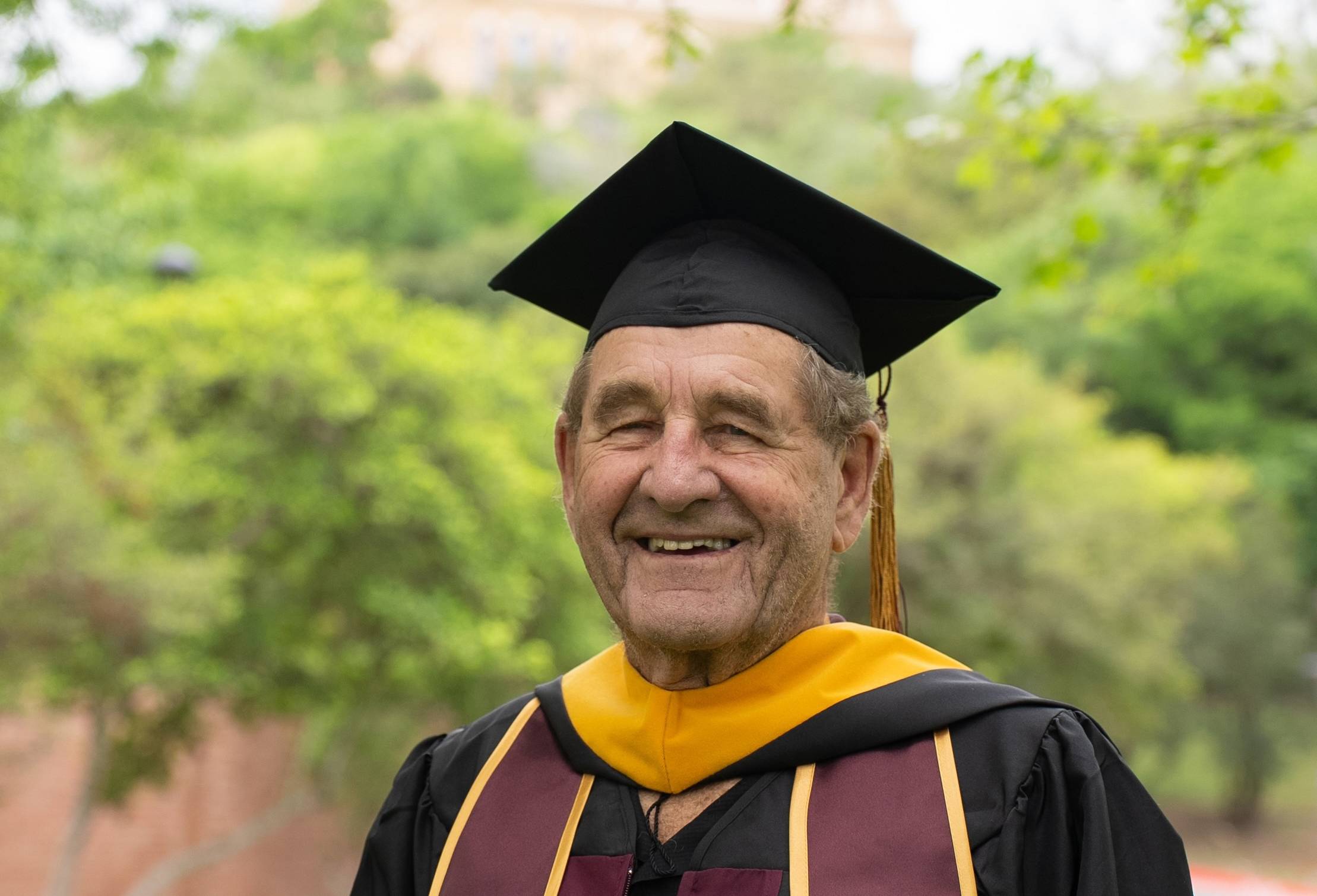Thesis research and reflections
His master’s thesis, titled Ethnology of Older People Living Full-time in RV Parks, is the result of two years of ethnographic research that included interviews with more than 20 people and participant-observation in RV parks across Texas. Whitehead explored the diverse reasons people choose RV living in later life, from financial necessity to the pursuit of freedom and simplicity.
“This experience has been very interesting as I learned how important it is to listen and observe, and to see the world through the lens of the people I was interviewing,” he said. “My thesis focused on the circumstances that led people to be living in an RV park—was it a free choice, or the only option, or something else?”
Angela VandenBroek, Ph.D., Ian’s thesis advisor and longtime professor, praised his dedication to the field and the quality of his work. "Ian has been a joy to have in our anthropology community. His commitment to learning, enthusiasm, and sharp thinking elevate every discussion and project he's participated in," she said. "Ian documented the diverse circumstances that led people to RV life—from rejections of the suburban American dream to social failures that left older people vulnerable in later life. Despite this range, he found a consistent pattern of community building and support within these RV parks."
VandenBroek also emphasized the broader relevance of Ian’s research.
"In the U.S., our media is often focused on youth—in the case of Ian's research, we tend to think about 'van life' millennials and tiny home influencers,” she explained. “Ian’s work shifts our attention to the experiences of older adults and how they navigate economic instability, loneliness, and environmental concerns. His research showcases the creative ways people build support networks and systems of care despite larger social inequalities."
A lifelong love of learning
Whitehead said he particularly enjoyed the format of graduate education at TXST. “The smaller classes and personal attention from professors are significant,” he said.
His advice to prospective graduate students, especially those who may be hesitant? “Just do it. It is so different from undergrad. You are finally doing what you really want to do. Instead of slide and lecture-based exams, you have seminars, discussions, and multiple research papers.”
